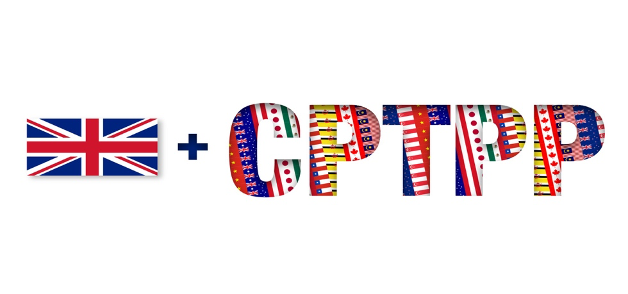Much has been written about the UK Government’s commitment to finalise post-Brexit, bilateral Free Trade Agreements, including the UK-Australia Free Trade Agreement (FTA). However, just as importantly, the UK has also recently committed to join the Comprehensive and Progressive Agreement for Trans-Pacific Partnership (CPTPP).
CPTPP is a trade agreement between 11 countries that comprise some of the world’s most dynamic economies: Australia, Brunei, Canada, Chile, Japan, Malaysia, Mexico, New Zealand, Peru, Singapore, and Vietnam. In 2018, CPTPP member countries accounted for £95b worth of the UK’s trade and 13% of global GDP (which would increase to more than 16% if the UK were to join).
Last week, International Trade Secretary Liz Truss signed the UK-Japan Comprehensive Economic Partnership Agreement (CEPA) and took that opportunity to express the Government’s view that CEPA: “…opens a clear pathway to membership of the Comprehensive Trans-Pacific Partnership – which will open new opportunities for British businesses and boost our economic security…”
DIT published an update on the UK’s accession to CPTPP in June 2020 detailing its reasoning behind potential accession and the benefits that could be realised by British business and consumers.
Last week, Vivien Life, a Director at DIT, identified three key reasons why the UK Government wants to pursue accession to the CPTPP:
- To secure increased trade and investment opportunities in the CPTPP trade area.
- To help diversify our trading links and supply chains.
- To help secure our future place in the world.
CPTPP accession undoubtedly will play an important role in placing the UK at the centre of a modern, progressive network of free trade agreements with dynamic economies. The Australian Prime Minister, Scott Morrison, is quoted as saying: ‘the British would be pushing at an open door’ (if they were to seek membership of the CPTPP).
Kepdowrie Chambers has assisted hundreds of UK-based companies with their “homework” and due diligence into the Australian market, including setting up and expanding their businesses in Australia. In particular, we have noted that expressions of interest in the Australian market have grown steadily ever since the 2016 EU Referendum and exponentially since Brexit, so please get in touch if you’d like to have a discussion about Brexporting to, or Brexpanding in, Australia. We’re here to make sure that the learning-curve is not a challenge and you can quickly get on with the more important task of winning new customers.

